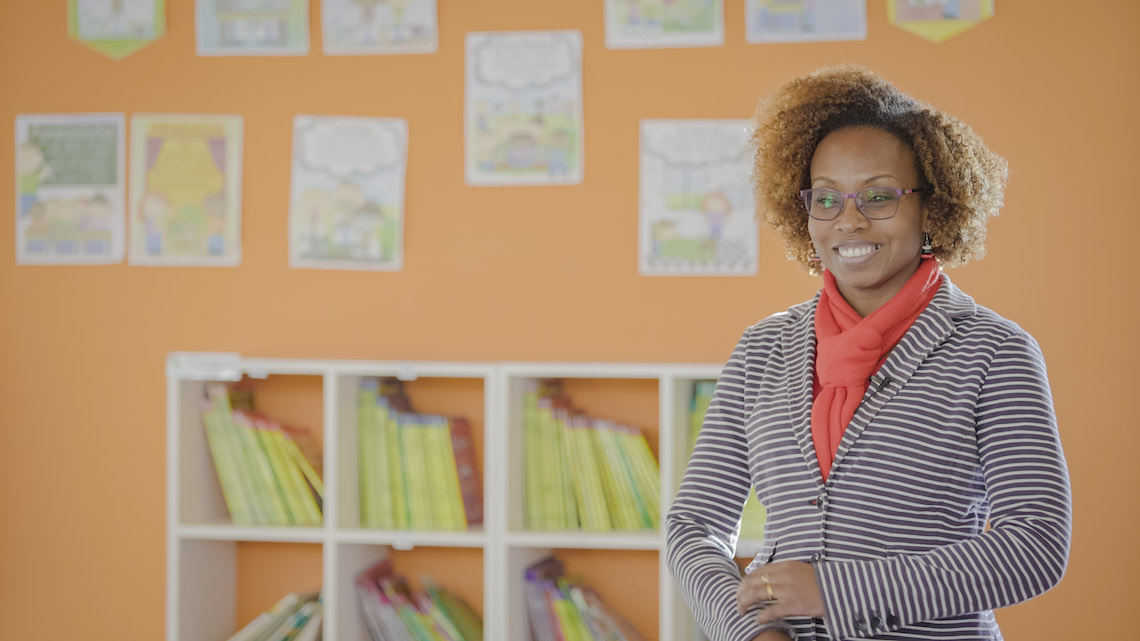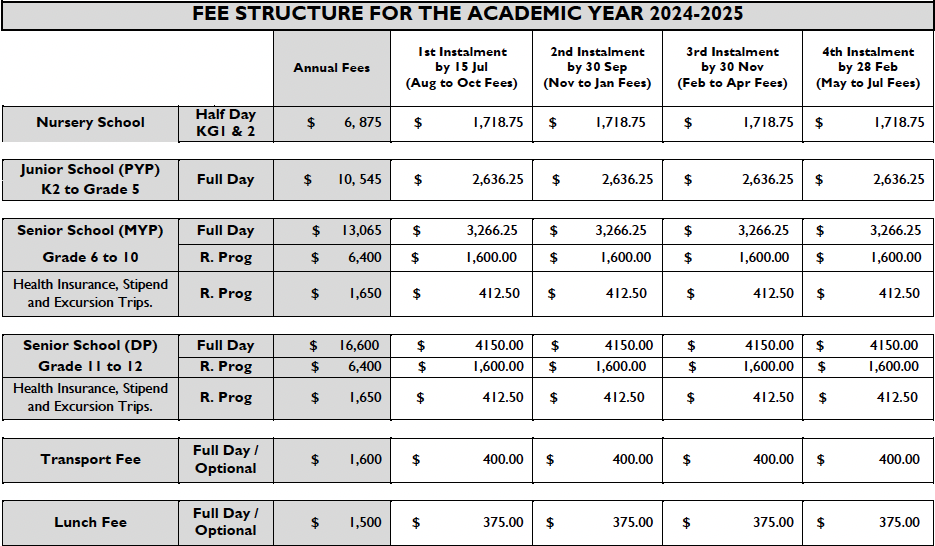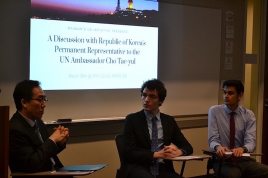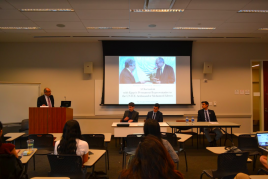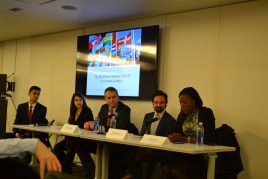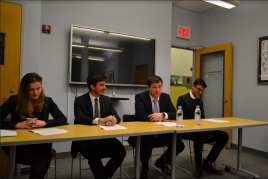Rajan Thampi: Working for a cause
Rajan has played this role of connecting students to resources for his entire career. His work with Aga Khan Education Services began in 2008 in Maheshwaram Mandal, present day Telangana, where he implemented outreach programs for government schools and anganwadis. Rajan was in charge of programs like introducing life skills to high schoolers, leading health programs for adolescent girls, organising inter school sports competitions, and also training teachers for pre-primary and primary schools. Rajan’s other responsibility at that time, something he is still involved in, is creating and maintaining relationships with government officials.
A significant part of outreach depends on securing permission and getting recognition from government education bodies. Rajan played a major role in getting junior and senior schools recognised by the authorities. Rajan thanks the people who support the outreach department in these endeavors - the Academies Unit and members of the local board, Suleiman Hirani and Jayanthi.
Born in Kerala, the second of five siblings, Rajan grew up in Shakkarnagar, Telangana. Shakkarnagar is home to historical industrial era sites built under the Nizam. Most significant among these sites is the 1,600 square kilometer Nizam Sugar Factory that the town gets its name from. Designed as a model town, the place was built for factory employees and their families. “My father was an accountant in the factory,” remembers Rajan, “and we use to live in the accommodation provided by the factory in its colony.” Madhu Malancha high school, where Rajan went, was also created and funded by the factory. But India’s sugar trade has been in decline for decades, and in his lifetime Rajan has had to see the closure and privatisation of the massive factory. “Asia’s largest sugar factory is now shut,” he muses.
After completing senior school, Rajan gained a Bachelors in Commerce and started teaching at a private school. Finding his calling, Rajan then pursued a Bachelors in Education, focusing on social studies and education. Today he also has a Masters degree in social work under his belt. To Rajan, these degrees are tools to help others. Asked about the outreach department's future plans, his responses are ambitious and focused. “Reaching out to 31 districts of Telangana,” he says, “and to continue to share expertise through collaborative discussion forums for the government teachers are some of my plans.”
“Inner delight,” he says, “and the satisfaction obtained from working for a cause are the rewards I seek from my work." If the outreach program is a manifestation of the ethos behind service and stewardship, then Rajan exemplifies those ethos.
Inaara Sarfani (Class of 2016): Valuing personal development
The time I spent at the Aga Khan Academy Hyderabad helped me become the person I am today. The Academy served as a platform for me to develop my self-expression, confidence, balance, service and reflective ability. The Academy provided a prestigious curriculum through the International Baccalaureate (IB) which exposed me to a unique style of education that equally emphasised academics and extracurriculars. Through teamwork, both in classes and service projects, I built collaboration as well as communication skills. To be honest, there is nothing that has not helped me adapt to university life from the time I spent at the Academy and I identify the most with the ability to reflect.
Prior to joining the Academy, I was an introvert who kept to herself and preferred the company of people I knew. Studying at the Academy was first step out of my comfort zone, as I had to make new friends with the people I would share my classes with for the upcoming four years before graduation and university. For a person as shy as I was, it sounded terrifying but I was willing to take risks to receive quality education and learn skills that would help me in the future. Apart from the rigorous academics that kept students on their toes, the service projects and athletic events fostered a close relationship between students. I was a part of the service project that went to a government school for girls (Kasturba Gandhi Balika Vidyalaya) and undertook the responsibility to improve their conversation skills in English along with imparting news of global events among them. Working with classmates, devising plans, organising meetings and keeping track of the students’ progress were some of the tasks that helped me understand my classmates further as we worked together to create positive changes in people’s lives. In this endeavour, tracking the progress of these students foreshadowed the importance evaluation and reflection would have in my life.
There was also a part of me that wanted to achieve something valuable; to me, this meant two things: true recognition and establishing relationships I would continue in the future. I was fortunate to achieve both of these by being a part of the Academy. I received recognition for my hard work and the faith my teachers, my career advisor and my parents put in me was rewarded when I received the Ontario Tuition Waiver. I have developed a close communication network with people I met at the Academy.
I integrated the qualities I learnt at the Academy into university life by participating in various extracurriculars. I have volunteered at the women’s centre who provide a supportive atmosphere to people regardless of their gender and currently a member of the Marketing Advisory Board and Residence Promotion Team for on-campus residences. Being a part of these teams required me to communicate effectively as well as form good relationships with my teammates; skills that I learnt at the Academy, proving useful.
I am currently planning to minor in human resource management and explore this field along with psychology. I plan to be open to experiences that will come along the way. Looking back on my time spent at the Academy, I cherish the small yet meaningful moments, such as going for service projects with friends and engaging history classes. I can see the introvert girl trying to fit in with a group of equally new students starting their first day at the Academy; I also see that same girl receiving the scholarship and realising the potential she always had. The transition to university would not have been easy if it were not for the time I spent at the Aga Khan Academy Hyderabad.
By Inaara Sarfani
Naheed Hirji Keynote Speech at 2016 Peace Summit
Naheed Hirji, Growth and Partnerships Manager at Facebook, Africa was one of the Keynote speakers at the Peace Summit 2016. Naheed has in the past worked with Microsoft, Zynga and various social enterprises that are using technology to make a positive change in the world. He currently works on growing internet penetration in Eastern and Southern Africa using Facebook’s free basics (Internet.org).
Naheed stirred an interesting discussion around the theme of using Internet as a tool for peace. He started off with a conversation around the question “Is internet a human right?” Students responded with some interesting claims including the fact that humans have lived without the Internet before so why can’t they now? However, some brought up the issue of censorship and how governments monitor the public, compromising privacy. A discussion on whether or not internet is a tool for peace followed. Opinion was split in the room at first. The proposers argued how awareness and fundraising for important causes can be done using social media while the opposing side argued that the internet has given birth to cyber bullying.
This discussion finally led up to Naheed sharing how he came to a conclusion about this and why he took the job at Facebook. Naheed was a technology geek growing up but wanted to make a difference using technology. When he was offered the job at Facebook, he was uncertain about the impact he would be able to make, so he used IKIGAI. IKIGAI is a Japanese concept meaning "a reason for being". Everyone, according to the Japanese, has an IKIGAI. Finding it requires a deep and often lengthy search of self. IKIGAI evaluation consists of 4 questions: Are you doing something that you love? Are you doing work or deeds that the world needs or will be better for? What is it that you are really good at? And finally, is it possible to monetize this? His job was going to be to grow internet users in Africa, but how would this benefit people and the world? He thought to himself, the internet is a breeding ground for cyber bullying, spreads false information and hate speech and reduces individual privacy. He used the examples of ISIS and the conflict between Apple and the US government. However, the internet has the incredible power to connect people around the world, enable friends and families to communicate, improve job creation, education and health care levels, gives us information on our fingertips and gives everyone a voice and the power to share their opinion. If he were to help launch free basics, it would make the internet accessible to more people by providing them access to a range of free basic services like news, maternal health, travel, local jobs, sports, communication, and local government information, assisting them to improve their lives. He was going to be able to use technology to make a difference in the lives of billions of people. When he took the job at Facebook, he was sure he had found his IKIGAI.
He believes the internet and technology can be used as a tool for peace. All that is required is a change of attitude, being informed and critical thinking. “We must strive to become responsible citizens of the internet, break cultural, societal and political barriers and engage in respectful dialogue.” he said. He ended by sharing the idea behind peace.facebook.com, which demonstrates friendship and understanding in the most unexpected places and which is what we must aim to achieve using the internet.
By Inaara Gangji, DP1 (The Reporters)
Adilia Cabral: Standing Up for Inclusiveness and Respect in Classrooms
Throughout the course of her teaching journey, Adilia Cabral has valued the importance of inclusivity in creating an engaging and fruitful environment in the classroom. She shares details of her evolution during her time at Aga Khan Academy Maputo.
For the Aga Khan Academy Maputo teacher, Adilia Denise Aly Guedes Evaristo Cabral, mutual trust between teachers and students, as well as between students themselves, is of paramount importance for a thriving classroom. It is a crucial factor for any successful learning experience. And how does Adilia ensure this flourishing environment persists in her classroom in Maputo, Mozambique? By supporting students and ensuring they support and respect each other.
“I teach with love because I want to gain the trust and friendship of students. I am always available to listen to them and I want them to feel comfortable sharing their problems with me. I always try to look students in the eye and read their body language, because that's what dictates how I should react with a particular student that day,” she says, adding, “I also make sure there is a spirit of cooperation between students in the classroom.”
Listening to Adilia and the details of her background, education and experience, one feels she chose the perfect career for herself.
“When I was a young student in school, one of my aunts, who was an educator herself, told me that I should follow the teaching profession because she saw I had a passion for that calling. I am glad I listened to her. I love to teach and want to inspire and empower my students to excel in whatever they choose to do.”
Adilia was born in Mozambique in the province of Beira. She has a degree in French teaching from the Pedagogical University in Maputo, Mozambique. After graduating in 2004, she taught in private schools around the cities of Maputo and Matola. She joined the Academy in 2017 where she teaches French Language Acquisition and Portuguese Language and Literature.
The Academy’s International Baccalaureate (IB) curriculum is interwoven with the rich Aga Khan Curricular Strands of ethics, pluralism, economics for development, cultures, governance and civil society. These play a vital role in Adilia’s instruction as she incorporates them in her lessons.
“One way to ensure that in a pluralistic environment there is no discrimination or bullying is to make students respect each other regardless of colour, race or background. This is an aspect that is always reinforced within the Academy through the Aga Khan Academies' Learner Profile, in the classrooms and the way our units are designed.”
Making certain students respect each other and work together is important to Adilia. But so is independent learning. As she explains, “During my class, I prioritise teamwork, group work and peer work as well. All students must respect each other regardless of disagreements. As for training small leaders, the activities are designed so that each student takes action in the units. I always give students opportunities to become independent and look for solutions to overcome problems and obstacles. In my classes, each student contributes to the success of the group.”
Joining the Academy has been a transformative journey for Adilia. It has helped her in her personal and professional growth and has made it possible for her to become a more effective educator.
“The Academy has made me a better instructor by giving me feedback on my teaching,” she states and adds, “also, the institution offers ongoing training courses to make teachers more effective and more successful.”
Reflecting on her time at the institution, Adilia says a day that was especially rewarding and memorable for her was the day she graduated from the Academy’s Teachers Preparation Programme (TPP).
“I felt special,” she recounts with pride. “I felt recognised for what I was doing and it made me aware of how important the training was and how important the teaching profession was. The Academy was placing great trust in me. And I had to work hard for not only for myself, but for my students and for my country. That day was the beginning and not the end of a long journey.”
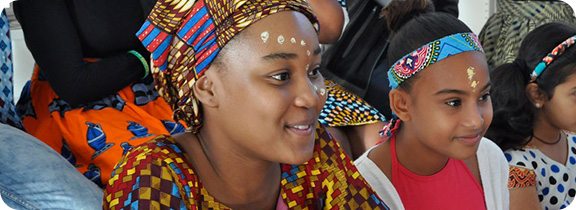
Fee Schedule
Fee schedule for the 2024-2025 academic year.
Click here to download the Academy's fee schedule for the 2024-2025 academic year.
1. One-time, non-refundable admission fee of USD 2,000 is payable for each student enrolling for the first time.
2. One-time, refundable security deposit of USD 1,500 is payable upon acceptance of admission. It is refundable when the student leaves the school as long as the required notice has been given in writing and “No Dues” clearance has been obtained from the school. No interest is paid or payable on this deposit.
3. A sibling discount of 5% of tuition fees will be applicable for second and subsequent children.
4. Tuition fees may be paid for a full year with an early-payment discount of 5%, if paid before 15 July.
5. Tuition fees may be paid in four equal instalments – first, no later than 15 July, second by 30 September, third by 30 November and forth by 28 February of each academic year.
6. A penalty of USD 50 shall be applied on the 1st of every month on any delayed payments made without agreement with the Finance Department. Unexplained delays shall make the students liable to suspension.
7. Tuition fees must be paid within 30 days of admission to secure a place at the Academy.
8. Tuition fees include course fees, the use of essential course books, library books, IT structure, science laboratory equipment, online education and certain classroom supplies.
9. Tuition fees do not include uniform costs.
10. Exam fees for the IB Middle Years Programme and the Diploma Programme will be billed separately based on the actual fee issued by the International Baccalaureate Organization (IBO).
11. Residential fees (USD $6400+$1650) include accommodation, food, health insurance, utilities, pocket allowance, transportation for in city excursions and community support visits.
12. The fees can be paid in US dollars or Mozambican metical. For payments in meticals, the invoice rate will be used. The Academy however reserves the right to change this policy.
13. Parents must provide the Finance Department (finance.maputo@agakhanacademies.org) with the proof of payment made through direct deposit or bank transfer, even if the payment is done by an organisation or a company.
14. If a student wishes to leave the school, one term’s advance notice of withdrawal must be given in writing or, in lieu of notice, one term of the annual fees will be due and payable. School clearance will not be possible until the fee account is settled in full.
15. The Academy reserves the right to withhold results, school leaving certificate, transcripts or any other information and/or document until all outstanding dues are settled in full.
16. Students who have been admitted to the Academy, and can demonstrate need, will be considered for financial aid.
17. The above terms and conditions may be modified, or new terms may apply to reflect changes in the law or our services.
18. For further information, please contact us via email at admissions.maputo@agakhanacademies.org.
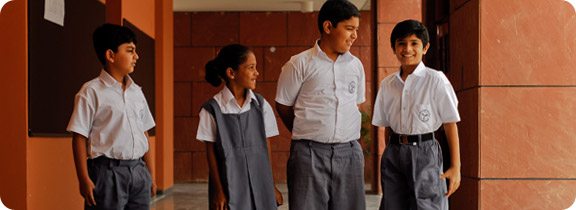
International Exchanges
An international network of Academies will eventually link students with their counterparts in Africa, South and Central Asia, and the Middle East.
International student exchanges between Academies in different countries, as well as with allied schools in Europe and North America, will offer students opportunities to broaden their worldview and learn to be at ease in multicultural settings. A common curriculum will allow students to study abroad without facing uncertainties regarding compatibility of course of study or examinations.
An inaugural programme is planned for the 2018-19 academic year for grade 9 students at the Aga Khan Academy Mombasa and the Aga Khan Academy Hyderabad. The programme will grow over the coming years, drawing in more Academies as they open and giving students the opportunity to experience life in a range of different countries and cultures.
The Academies are currently putting in place their dual language programme where English and a national language will both be languages of instruction. English will be a common medium at all Academies.
The aim is for students throughout the school to be at least bilingual, and the study of a foreign language will be greatly enhanced through immersion in that language. Likewise, appreciation and respect for other nationalities, cultures, and intellectual traditions will be greatly facilitated by direct contact with people in other countries.
Each Academy will have residential facilities in a secure campus setting. Accommodation will be provided not only for international students, but also for boarding students from within the country or region. The campus is considered a vital part of the educational programme.
Campus life is an important part of the international exchange programme. Many of the least tangible but most important elements of an education – the development of practical leadership skills, the capacity to make ethical judgments, the ability to navigate through complex cultural settings – are formed outside the classroom. Mealtimes and other informal gatherings offer opportunities for discussion, meetings, and study groups. A campus therefore greatly extends and enriches international exchanges.
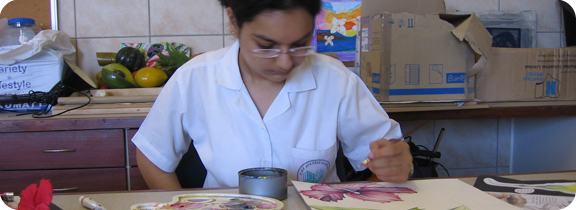
International Baccalaureate
The International Baccalaureate (IB) is a non-profit educational foundation, motivated by its mission to create a better world through education. IB programmes for students aged 3-19 help develop their intellectual, personal, emotional and social skills to live, learn and work in a rapidly globalising world.
Following in the footsteps of its sister schools in Mombasa, Hyderabad and Maputo, the Aga Khan Academy Dhaka plans to become an IB World School, subject to the necessary authorisations.
IB World Schools share a common philosophy – a commitment to improve the teaching and learning of a diverse and inclusive community of students by delivering challenging, high-quality programmes of international education that share a powerful vision.
Aims of the IB programme
Founded in 1968, the International Baccalaureate currently works with schools in 144 countries to develop and offer their programmes to over one million students.
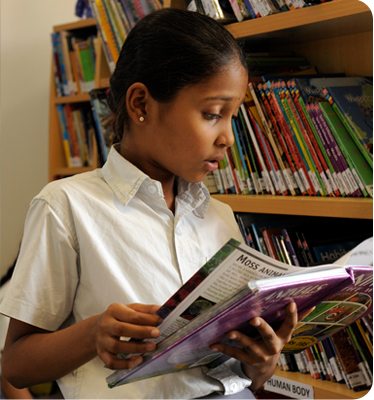 The IB mission statement declares:
The IB mission statement declares:
"The International Baccalaureate aims to develop inquiring, knowledgeable and caring young people who help to create a better and more peaceful world through intercultural understanding and respect. To this end the organisation works with schools, governments and international organisations to develop challenging programmes of international education and rigorous assessment. These programmes encourage students across the world to become active, compassionate and lifelong learners who understand that other people, with their differences, can also be right."
For further information about the International Baccalaureate and its programmes, please visit the IB website.
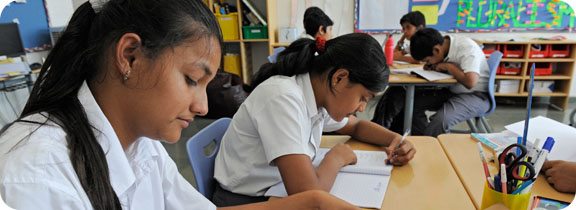
Admissions
The network of Aga Khan Academies has been established to provide exceptional students from all backgrounds with an outstanding education. Admissions are currently being accepted for the Primary Years Programme, Middle Years Programme and Diploma Programme at all Academies.
The Academy seeks students from pre-primary through higher secondary levels representing a diverse range of economic, cultural, ethnic and religious backgrounds. Students should have the ability and motivation to excel academically and should demonstrate leadership in community service and other co-curricular pursuits.
Selection is based on student merit.
The Academy endeavours to meet the demonstrated financial need of each admitted student.
Candidate characteristics
The admissions committee evaluates candidates based on a range of measures and selects those demonstrating a high level of motivation and commitment to learning, a strong sense of integrity and respect for others from diverse backgrounds.
Successful applicants typically demonstrate the following characteristics:
"The students at this institution will be distinguished not only for their academic capacity, but for their character and commitment to citizenship."
- a record of outstanding academic achievement or potential
- highly motivated and intellectually curious
- a strong sense of integrity – the capacity to judge right and wrong and to stand up for one’s principles
- a high level of social awareness, including openness and sensitivity to those of different backgrounds
- the desire to work towards, and instigate, positive change
- leadership in community service, student government and/or sporting activities
- notable accomplishments in the visual or performing arts.
Please visit the websites of the individual Academies for further information and application forms.
Raghuveer Vyas (Class of 2016): Advocating for change and development
Raghuveer Vyas graduated from the Aga Khan Academy Mombasa in 2016 with a desire to be a change-maker in our world. Due to his experience at AKA Mombasa, this desire has become a reality.
Raghuveer Vyas, far right, at a UN Initiative event at NYU.“My time at the Academy undoubtedly influenced where I am now,” Raghuveer said. “The Academy's strong emphasis on contributing back to society certainly further influenced my academic choices.”
Raghuveer pursued his undergraduate degree at New York University (NYU) in Global Liberal Studies with a concentration in Politics, Rights & Development. Currently during his final year, Raghuveer was admitted into NYU’s Bachelor of Arts (BA)/Master of Arts (MA) programme.
“Through this programme I hope to graduate with an MA in International Relations by 2021,” Raghuveer said. “I will be concentrating on Sub-Saharan African affairs and peace and conflict resolution in the International Relations programme.”
Since joining NYU, Raghuveer has been a member of the United Nations Initiative at NYU, which was created to increase the dialogue between international leaders and the youth/students who have become disconnected from the global political process. During his final year as an undergraduate, Raghuveer became the director of the Initiative because he believes “the UN Initiative’s mission and actions to be absolutely critical to the political discourse at NYU.” Due to his commitment and passion, Raghuveer said he has made some impressionable strides in the Initiative.
“I personally have worked to increase the participation of the African international leaders, such as the ambassadors of Egypt, Nigeria and the African Union,” Raghuveer said. “I’m also working to expand our panel discussion series, which focuses on thematic issues as opposed to the affairs of nation-states.”
As part of the Global Liberal Studies programme at NYU, students are required to spend a year abroad at one of NYU’s satellite campuses, such as Berlin, which is where Raghuveer decided to go. Through this, Raghuveer discovered his passion for climate change when he started interning with Climate Analytics, an international climate science and policy institution.
Raghuveer Vyas, far right, at at UN Initiative event at NYU between an ambassador from Egypt and NYU students.“I truly began to understand that climate change poses the single largest threat to the human species, and would disproportionately affect lower economic classes and citizens in developing countries, with the African continent poised to be one of the worst hit, “ said Raghuveer.
While in Berlin, Raghuveer worked as part of the climate policy team at Climate Analytics where he conducted scholarly research on the policies surrounding climate change mitigation and adaptation. As part of the team, Raghuveer said he was able to co-author a report, “Decarbonising South and South East Asia”, for the Asian Development Bank and the UN Environment Programme.
“The report aimed to investigate the current state of fossil fuel consumption in South and Southeast Asia and analyse the potential of renewable energy forms to replace these fossil fuels,” Raghuveer said.
Due to his time at Climate Analytics in Berlin, Raghuveer said he rejoined as an intern at their New York office during his final year at NYU. In New York, Raghuveer worked with the Implementation Strategy team, which assists developing countries, specifically countries in Sub-Saharan Africa and the Caribbean.
Raghuveer Vyas, far left, at a UN Initiative at NYU.“While the work I did was quite diverse, I worked quite closely with the small, and severely threatened, country of Saint Lucia,” Raghuveer said. “The country was attempting to receive financing from the international community to realise its ambitious National Adaptation Plan for climate change. I got to work on the national Private Sector Engagement Strategy (PSES), which chartered, among other things, a means through which the government could better engage with the country’s private sector in making them more resilient to climate change. This was submitted to the Saint Lucian government in early December, with the Cabinet of Ministers poised to read it in the new year.
Along with this, Raghuveer said he has worked on preliminary research for a universal Green Affordable Housing Project for Saint Lucia, which “aims to create a relocation and housing system that is resilient to the effects of climate change and compensate victims.” Raghuveer said he also drafted a funding proposal for Saint Lucia, “which aimed to revamp the national health sector and make it more resilient to climate change, both in terms of service provision and infrastructural soundness.”
Although his interests aren’t only focused on climate change, Raghuveer said he understands the urgency of recognising this phenomenon and the implications it can have on the entire world.
“Climate change is somewhat personal to me as I come from a farming family in Kenya,” Raghuveer said. “I’ve directly witnessed the impacts of a changing climate on the farm and seen how widespread the impacts are. For me, climate change has provided a unique lens through which to understand and question some of the perennial challenges facing the Global South.”
Reflecting on his time at the Academy, Raghuveer said he would not be where he is now had it not been for the various opportunities he received and the different skills he learned at the Academy.
“I first discovered my passion for global politics at AKA Mombasa through different platforms ranging from participating in Model United Nations, to having an incredible team of Humanities and Global Politics teachers who all really encouraged me to hone in my skills in the subject,” Raghuveer said. “A lot of necessary skills, such as critical thinking and analytical writing, were taught to us at the Academy, making it far easier for me to adjust to the demands of college.”
Raghuveer Vyas, far right, at the NYU Jordan Center.Although Raghuveer is unsure of what he’ll do after his Master’s at NYU, he said he is looking forward to what the future has in store for him.
“I’m excited to be a student during one of the most fascinating and influential eras in Global Politics and I’m looking forward to learning more about the various issues that grip us as an international community,” Raghuveer said.
By Anusha Lalani
